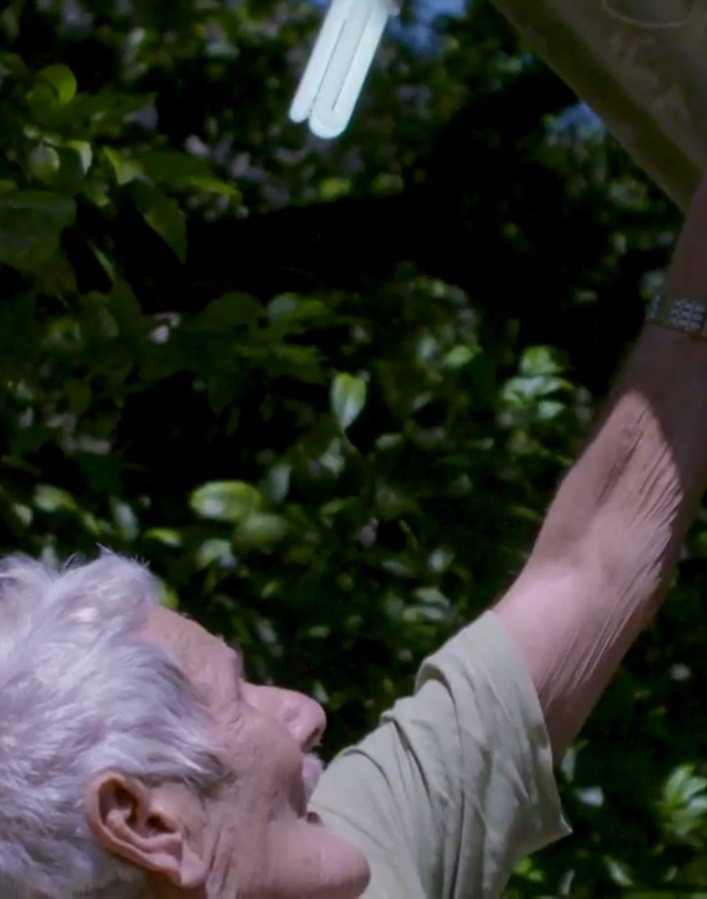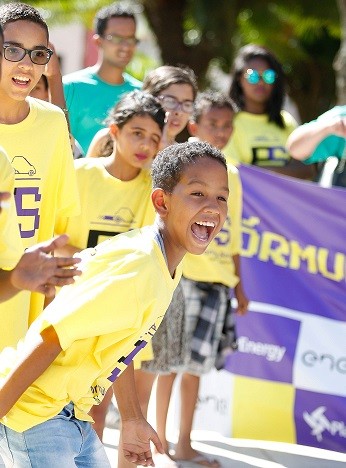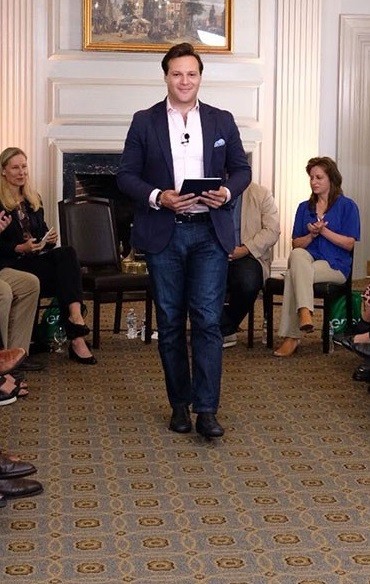“There is no longer a separation between innovation and sustainability. The concept of Innovability is certainly stimulated by technological know-how and creativity, but most of all, by passion”
The business aspect also counts, continued Ciorra: “Let’s take the United Nations Sustainable Development Goals; Enel is working hard to contribute to reaching these targets. Each Goal is a commitment to improving the life of everyone, yet it can also be a way to increase business. For instance, Goal 7 aims to bring energy to those on the planet that are still without it, i.e. more than one billion people. Reaching that goal means doing something good, while also creating a huge, new constituency of potential future clients.”
It’s a mechanism that Henry Chesbrough, the keynote speaker at this #EnelFocusOn and the theoretician considered the father of Open Innovation, defined as a textbook operation: “It’s fascinating to see how Enel works as an integrator and aggregator of awareness to bring renewable energy across the globe in a quicker, more efficient, increasingly sustainable and scalable way.”
However, Ciorra continued, what is needed is “a brave and creative vision, that thinks outside the box, beyond those barriers which tell you that the solution to your problem is impossible. The adjective 'impossible' kills your dreams. If you can transform apparently insurmountable obstacles into challenges, those dreams can become reality.”
Facing technological challenges with InnoCentive
This is why Enel, through open tools such as our Open Innovability crowdsourcing platform, wants to produce innovation not only alongside companies, universities and non-profit organisations, but also with the most brilliant minds in the world, those for whom the adjective “impossible” either does not exist or else represents an irresistible challenge. Ciorra believes that the best place to find these minds is InnoCentive, the crowdsourcing platform that focuses on finding solutions to innovation-related problems, a sort of Google for Open Innovation whose clients include the European Union and the EPA (United States Environmental Protection Agency). It is thanks to InnoCentive, said Ciorra, that in recent years “we have overcome many technological challenges, such as how to direct larger quantities of solar rays onto photovoltaic panels, and increase production efficiency, without occupying more physical space. This amazing and very simple solution came from Guatemala.”
The collaboration has been so profitable that it has now been transformed into a four-year agreement, signed during the San Francisco event by Ciorra and Craig Jones, Executive Chairman of InnoCentive. Following this agreement, InnoCentive and Enel will identify 50 technological challenges that will assist the Group in delivering operational efficiency and industrial growth, while also creating shared value for Enel and the group’s stakeholders. The challenges will be launched simultaneously on both platforms and then on the Enel platform. The aim is to contribute to the United Nations Sustainable Development Goals, in particular Goal 4: Quality Education, Goal 7: Affordable and Clean Energy, Goal 8: Decent Work and Economic Growth and Goal 13: Climate Action. Once the challenges are identified, InnoCentive will launch a call to action on the platform, asking the 380,000+ problem-solversfrom the world of business, research, academia and startups to put forward their solutions.
“We are very happy to partner with Enel on the road to sustainability. The greatest opportunity that the Internet offers is to bring people together, to aggregate human intelligence to make the planet a better place”
“We have created a network of thousands of people across the globe, they are special talents who love all kinds of puzzles and problems and devote their energies to solving them. And, sooner or later, they find the solution.” Jones added “It may seem strange, but they do this more for pleasure than for money, it is almost a need, to solve the problem before others do.”
Citing InnoCentive internal data, Jones noted that many of the solutions come from Italywhich “manages to produce much more creativity that one would expect from of a country of its size.” The most interesting fact is that most solutions come from people whose academic backgrounds are completely different from those of the problems: as if confirming that creativity really does know no bounds, and further endorsing the fact that it is really necessary to “think outside the box” in order to make dreams come true. Or to accept that someone else can do that for you.
Open Innovation, the categorical imperative
This is the fulcrum of the theory of Open innovation, whose genesis and development was explained to the #EnelFocusOn participants by its theoretician, Henry Chesbrough, who runs the Garwood Center for Corporate Innovation at University of California-Berkeley.
“Actually, I didn’t develop who-knows-what kind of theory, I just watched what was happening in the world of business and started writing about it: these were slow changes, but there was the indication that they were going to evolve into a development model. Or rather, a categorical imperative”
The university professor noted how, in 2003, when he wrote his first book on the subject, the term Open Innovation could be found on about 200 Google pages. 10 years later, in 2013, the number of pages was 483 million.
Chesbrough continues “Once, ideas were hatched and matured within the four walls of a company. This was a waste because many ideas were left to moulder and were gradually forgotten instead of being developed to maturity. At some point, it became clear that if these ideas were circulated outside of the company, they could be enriched, refined and improved and, on their return to where they came from, would produce a huge number of benefits for everyone. This is why I think that the possibility offered by InnoCentive of activating 400,000 brains all at the same time to tackle problems is fantastic. It is the perfect instrument to launch flows of consciousness, inside and outside a company, all concentrated on a specific focus, that doesn’t necessarily start out from an economic standpoint.” As one of the influencers present, Argentine journalist Clarisa Herrera, observed, “Ideas don’t produce fruit if we treat them like private property.”
Summing up, Chesbrough is convinced that Open Innovation can enable a company to increase business, reduce environmental damage, improve social impact and inspire people to undertake small daily gestures for the planet. And, most importantly, it supports survival.
However, for all this to happen, companies need to change their corporate culture: this is what NASA has had to do, after years of reliance on crowdsourcing, to solve technological challenges. “After a while, they realised that this created a kind of identity crisis among their engineers as they saw that the problems they had been struggling with for years were being solved by people who knew nothing about aerospace engineering and didn’t even work at NASA. This crisis was defused only by revolutionising the corporate culture, recreating it with a focus on inclusion and an outward-looking approach. This is the road forward, the alternative is extinction.”
Chesbrough ended by concluding that most of the brilliant people don’t work for you, but it is with their contribution that a simple table can become the table that produced Instagram and that dreams can become reality.





